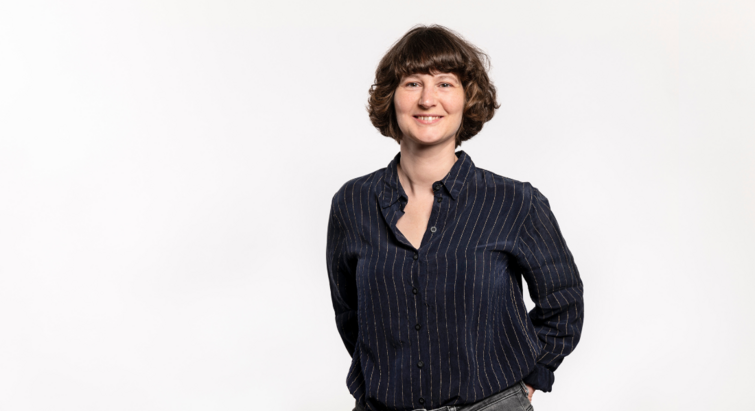
PhD defence: Exploring Equitable Sustainability Trajectories

PhD defence (hybrid)
Zoë Sakura Ogahara
Title of thesis
Exploring Equitable Sustainability Trajectories: Perspectives from the beginning of the palm oil global value chain
Abstract
Palm oil production is implicated in several of the global crises of our times, including tropical deforestation, climate change, biodiversity loss, and the violation of Indigenous rights. As such, there has been a significant push towards more sustainable practices within the industry, most notably through the efforts of the Roundtable on Sustainable Palm Oil (RSPO).
While environmental measures were initially the primary focus, recent years have brought greater attention to the specific challenges faced by smallholder farmers, highlighting the links between environmental degradation and the recognition of rights and stable livelihoods. While smallholders are often seen as a group that could benefit most from the economic promises of sustainability initiatives, they are also the least likely to meet certification requirements and be recognized as ‘sustainable’ within the global value chain.
The main objective of this thesis is to examine the impacts of global sustainability efforts at the local level, focusing on smallholders in Sabah, Malaysia, which area produces about seven percent of the world’s palm oil. I explore sustainability policies from producers’ perspectives, focusing on farmers and local governance. Previous studies have shown that smallholder voices have historically been excluded from policy and academic discussions, highlighting the need for their viewpoints in these conversations.
I contribute to academic debates by highlighting the importance of integrated sustainability analyses that consider environmental, social, and economic factors together, as we found through our literature review that many studies focus on isolated aspects of sustainability, such as biodiversity. I also argue for moving beyond certification-driven metrics, which may prioritize market access over other important sustainability outcomes. I develop ‘sustainability upgrading’ within the context of smallholder production as a flexible, multi-dimensional framework that enables nuanced discussions of trade-offs, and the potential social or economic costs involved in pursuing multiple sustainability objectives.
This thesis challenges the prevalent assumption that sustainability certification effectively enables smallholders to ‘upgrade’ in all sustainability dimensions. Our findings reveal that certification schemes often fail to address smallholders' specific needs and challenges. A key contribution of this thesis is to foreground smallholders’ priorities for maintaining natural, social, and economic resources, highlighting issues such as secure land tenure, stable incomes, and reducing economic risks.
I engage with Adloff and Neckel’s typology of sustainability trajectories—modernization, transformation, and control—to critically examine the ideologies that shape sustainability efforts and the power structures they reinforce or challenge. Our findings indicate that modernization approaches to sustainability are currently predominant, often reinforcing existing institutions and power dynamics rather than challenging them, even though there are areas where stakeholders express a clear desire for transformative change.
Finally, I contribute to the literature on social networks for sustainable resource governance through a case study of the Jurisdictional Approach for Sustainable Palm Oil in Sabah, Malaysia. Our study goes beyond the existence of stakeholder ties to examine the quality of these relationships. By integrating transaction cost theory, we show that stronger ties form when actors perceive that the benefits of the relationship outweigh the costs. These insights offer guidance for policymakers on fostering effective sustainability collaborations, though our findings suggest that stimulating strong ties is challenging in this context.
This research underscores the necessity of integrating marginalized perspectives into sustainability policies to ensure more inclusive and effective approaches to sustainable palm oil production.
Organiser:
Department of Food and Resource Economics (IFRO), University of Copenhagen
Supervisor:
Professor Ida Theilade, Department of Geosciences and Natural Resource Management (IGN), University of Copenhagen
Co-supervisor:
Associate Professor Martin Reinhardt Nielsen, Department of Food and Resource Economics (IFRO), University of Copenhagen
Assessment Committee:
Chair:
Associate Professor Mine Islar, Department of Food and Resource Economics, University of Copenhagen
Associate Professor Maria Figueroa, Copenhagen Business School (CBS)
Honorary Professor Rob Cramb, School of Agriculture and Food Sciences, University of Queensland, Australia
Master of Ceremony
Associate Professor Mariève Pouliot, Department of Food and Resource Economics, University of Copenhagen
The defence is open to all.
Yes. Please contact Zoë Sakura Ogahara zoe.sakura@ifro.ku.dk 23 January 22:00 (CET), at the latest to receive link and passcode for online hybrid zoom participation.
Yes. If you are interested in a full copy of the thesis, please contact the PhD student or the PhD Secretary milton@ifro.ku.dk
No. The doors close when the defence starts and will not be opened again until the defence is finished.
You cannot leave early either unless there is an emergency.
It is not allowed to take pictures or record the defence without prior agreement with the PhD student and supervisors.
There is usually a reception after a defence. We kindly ask you to contact the PhD student if you want to know the location of the reception.
Events


